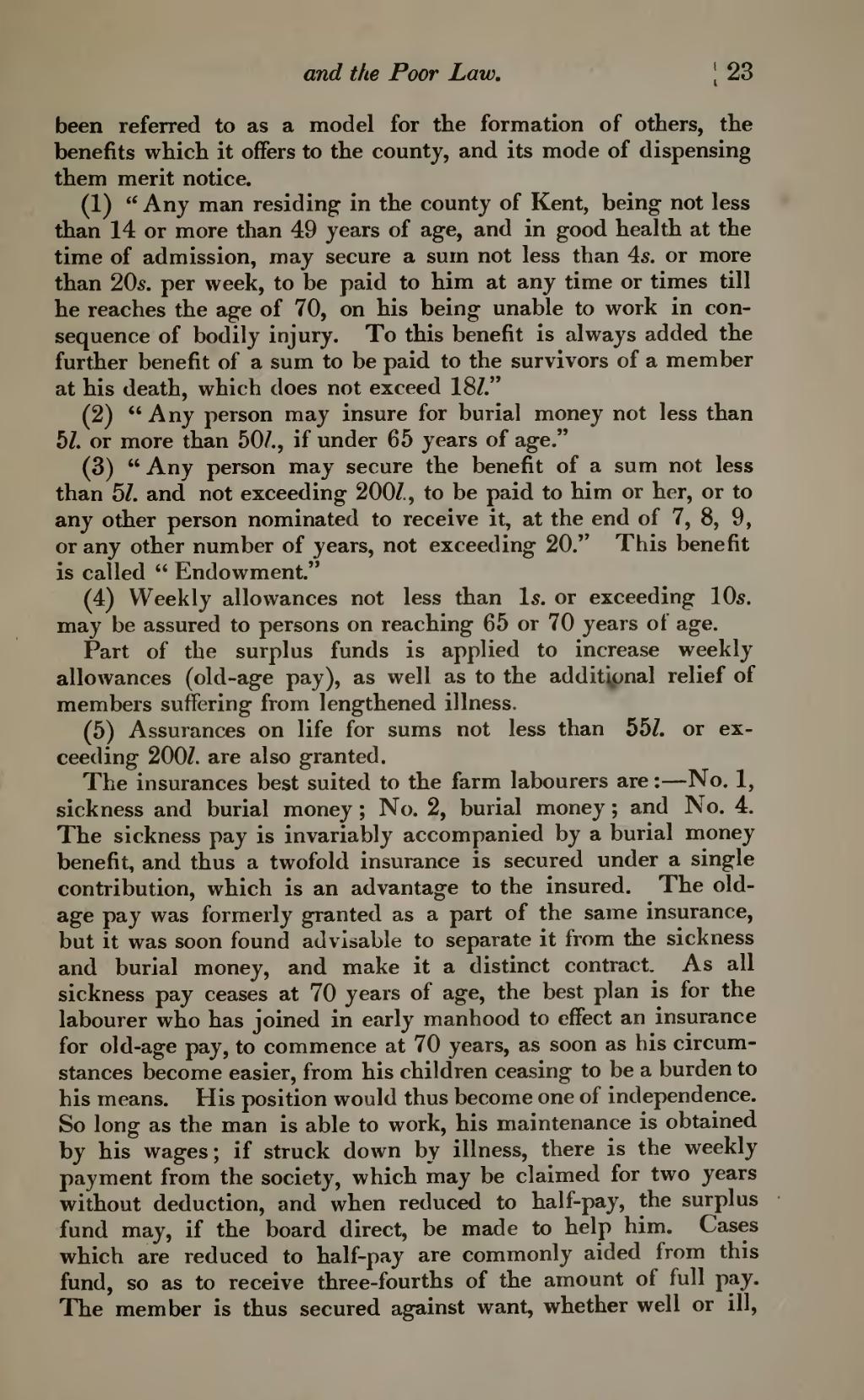been referred to as a model for the formation of others, the benefits which it offers to the county, and its mode of dispensing them merit notice.
(1) "Any man residing in the county of Kent, being not less than 14 or more than 49 years of age, and in good health at the time of admission, may secure a sum not less than 4's. or more than 2O's. per week, to be paid to him at any time or times till he reaches the age of 70, on his being unable to work in consequence of bodily injury. To this benefit is always added the further benefit of a sum to be paid to the survivors of a member at his death, which does not exceed 18l."
(2) "Any person may insure for burial money not less than 5l. or more than 50l., if under 65 years of age."
(3) "Any person may secure the benefit of a sum not less than 5l. and not exceeding 200l., to be paid to him or her, or to any other person nominated to receive it, at the end of 7, 8, 9, or any other number of years, not exceeding 20." This benefit is called "Endowment."
(4) Weekly allowances not less than 1s. or exceeding 10s. may be assured to persons on reaching 65 or 70 years of age. Part of the surplus funds is applied to increase weekly allowances (old-age pay), as well as to the additional relief of members suffering from lengthened illness.
(5) Assurances on life for sums not less than 55l. or exceeding 200l. are also granted.
The insurances best suited to the farm labourers are:—No. 1, sickness and burial money; No. 2, burial money; and No. 4. The sickness pay is invariably accompanied by a burial money benefit, and thus a twofold insurance is secured under a single contribution, which is an advantage to the insured. The old-age pay was formerly granted as a part of the same insurance, but it was soon found advisable to separate it from the sickness and burial money, and make it a distinct contract. As all sickness pay ceases at 70 years of age, the best plan is for the labourer who has joined in early manhood to effect an insurance for old-age pay, to commence at 70 years, as soon as his circumstances become easier, from his children ceasing to be a burden to his means. His position would thus become one of independence. So long as the man is able to work, his maintenance is obtained by his wages; if struck down by illness, there is the weekly payment from the society, which may be claimed for two years without deduction, and when reduced to half-pay, the surplus fund may, if the board direct, be made to help him. Cases which are reduced to half-pay are commonly aided from this fund, so as to receive three-fourths of the amount of full pay. The member is thus secured against want, whether well or ill,
